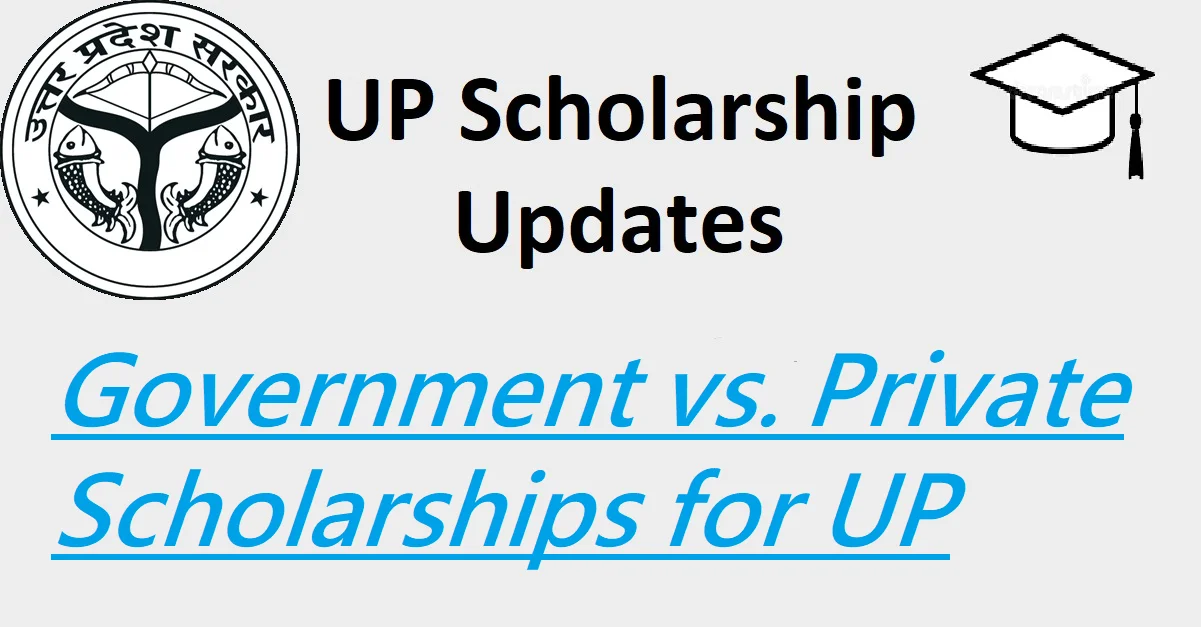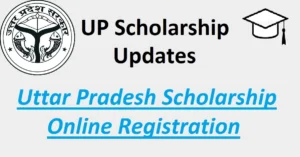In Uttar Pradesh, several scholarships are available for students by the government or private organizations. This post will help students and parents to decide on the kind of scholarship to apply for.
Governmental Scholarships
Advantages
- Widespread Coverage: Scholarships from the Uttar Pradesh government cut across various categories such as pre-matric, post-matric, minority, and SC/ST/OBC scholarships specific for students like this. That way, financial aid is available to numerous students regardless of their background.
- Affirmative Policies: These scholarships target students from economically disadvantaged backgrounds to be inclusive, thus reducing dropout rates. For instance, the Pre-Matric Scholarship for the SC/ST/General category requires family income not exceeding 100000 per annum to make it accessible to several deserving families.
- Supportive Institutions: Since governments oversee these scholarships, they have institutional backing that guarantees dependability and openness in the distribution of funds.
Disadvantages
- Bureaucracy’s Holdup: The process of applying and approving can be slow and unwieldy because of bureaucratic procedures.
- Insufficient Funding: The provided funds may be limited and not cover all educational expenses.
Private Scholarships
Advantages
- Greater Financial Support: In general, private scholarships have better financial awards that cover more aspects of education, such as books, tuition fees, and even living allowances.
- Various Opportunities: Numerous private scholarships cater to different areas of specialization, talents, or achievements. This diversity is beneficial if one has specific occupational goals or talents.
- Flexible Criteria: Private scholarships do not have rigid eligibility conditions only based on economic background, but they consider merit-based requirements, talent-focused needs, or those related to a particular profession.
Disadvantages
- Competitive: Private scholarships are usually highly competitive, whereby numerous students apply for few awards.
- Uncertainty: Government scholarships are more transparent and reliable when compared to private ones, hence making the application process a little bit of a gamble.
Summary of Scholarships
Notable Government Scholarships in Uttar Pradesh
| Scholarship Name | Eligibility Criteria | Benefits |
| Pre-Matric Scholarship for SC/ST | Family income < INR 1 lakh per annum | Tuition fees, maintenance allowance |
| Post-Matric Scholarship for Minority | Minority students, family income < INR 2 lakh | Tuition fees, maintenance allowance, additional allowances |
| National Means-cum-Merit Scholarship | Class 8 students, annual income < INR 1.5 lakh | INR 12,000 per annum for study expenses |
| UP Scholarship for OBC Students | OBC students, family income < INR 1 lakh | Tuition fees, maintenance allowance |
Prominent Private Scholarships for Uttar Pradesh Students
| Scholarship Name | Eligibility Criteria | Benefits |
| Aditya Birla Scholarship | Academic excellence, leadership potential | Tuition fees, mentorship opportunities |
| TATA Scholarship for Engineering | Academic merit, financial need | Tuition fees, accommodation, educational expenses |
| Reliance Foundation Scholarship | Various fields, outstanding academic performance | Tuition fees, living expenses, research grants |
| Inlaks Shivdasani Foundation Scholarship | Exceptional talent, specific fields | Tuition fees, living expenses, travel grants |
By navigating the complexities of scholarship opportunities and leveraging available resources, students in Uttar Pradesh can secure the financial support they need to achieve their educational aspirations.
Detailed Comparison: Government vs. Private Scholarships
Government Scholarships
The Government of Uttar Pradesh has organized government scholarships in different categories depending on the level of education and demography. These include:
- Pre-Matric Scholarships: They target school-going children between standards 1 and 10 to encourage schooling.
- Post-matric scholarships: For students above class 11, including those admitted for undergraduate and postgraduate studies.
- Minority Scholarships: They focus on minority community students to ensure increased access to higher education among these groups.
- SC/ST and OBC Scholarships: Specifically address the education inequities, like Scheduled Castes, Scheduled Tribes, and Other Backward Classes.
Case study: Pre-matric Scholarship for SC/ST Students: This scholarship is for families whose annual income is below one lakh rupees. It covers tuition fees, maintenance allowance, and other associated expenses, making it easier for low-income families to pay.
Private scholarships
Private scholarships typically start as the idea of foundations, businesses, and thoughtful people. Such grants usually have financial support that caters to tuition fees, books, and other needs such as living allowances.
- Variety in Opportunities: Private scholarships often have a focus on specific disciplines or talents. For example:
- Company Scholarships: Companies give them to students to help them pursue jobs like engineering, technology, and healthcare, among others.
- Scholarship Based on Talent: This targets students who are good at subjects like arts, sports, or music and empowers them with facilities they can use to develop their abilities further.
Case Study: The TATA scholarship for engineering students: This scholarship awards tuition fee payments and accommodation fees from the bursary fund with further related educational expenses to scholars who qualify based on merit and need.
Comparative Analysis of Government and Private Scholarships
To better understand the differences between government and private scholarships, let’s compare their key aspects:
| Aspect | Government Scholarships | Private Scholarships |
| Coverage | Broad (Pre-matric, Post-matric, Minority, SC/ST, OBC) | Specific (Field of study, talent-based, corporate) |
| Funding Amount | Moderate to Limited | Higher, covers broader expenses |
| Eligibility Criteria | Based on economic background and category | Merit-based, talent-based, and sometimes need-based |
| Application Process | Structured but bureaucratic | Flexible but competitive |
| Support and Guidance | Strong institutional support | Varies, sometimes limited |
Important Considerations for Students
Eligibility
- Government Scholarships: Government grants usually ask for proof of income, caste certificates, and academic records. Students must have all the documents and their eligibility before application.
- Private Scholarships: The qualification may range from a small gap to huge discrepancy. For instance, some scholarships are based on academic performance, while others appreciate extra-curricular activities or individual talents. Students must investigate what is compulsory by the potential funders and modify their applications accordingly.
Application Process
- Government Scholarships: Applying for government scholarships involves filling out many forms, presenting several documents, and going through confirmatory procedures that lack ambiguity amidst bureaucratic mazes.
- Private Scholarships: These applications can require essays, reference letters, and interviews. Being open to competition among applicants, students must show their strengths and demonstrate- how they are distinct from others.
Financial Planning
- Government Scholarships: Although government scholarships are helpful, they may not be enough to cater for all educational costs. Students should plan their finances by considering other sources of money in case of need.
- Private Scholarships: Private scholarships with high funding, however, may help to reduce the financial burden on students but to control the costs, they still need a well-planned budget.
Strategies for Maximizing Scholarship Opportunities
- Start Early: Begin researching and preparing for scholarships well ahead of time. It allows one to gather all necessary documents, meet deadlines, and prepare a good application.
- Leverage School Resources: Seek guidance from school counselors and teachers. These individuals can provide vital information and support throughout the application process.
- Stay Organized: Keep a record of application deadlines, required documents, follow-up actions, etc. This way, you will not miss any necessary details if you stay organized.
- Highlight Achievements: In your applications, focus on academic, extracurricular, and personal achievements. Being dedicated and well-rounded might help improve their odds of getting selected as a scholarship recipient.
- Seek Multiple Scholarships: Apply for more than one scholarship, thereby enhancing the chances of success.
Final Thoughts
A powerful tool for personal and societal development is the quest for education. Scholarships have a significant role in making education accessible to all, regardless of their economic backgrounds. By understanding the differences between government and private scholarships, students in Uttar Pradesh can make informed decisions for their future.




